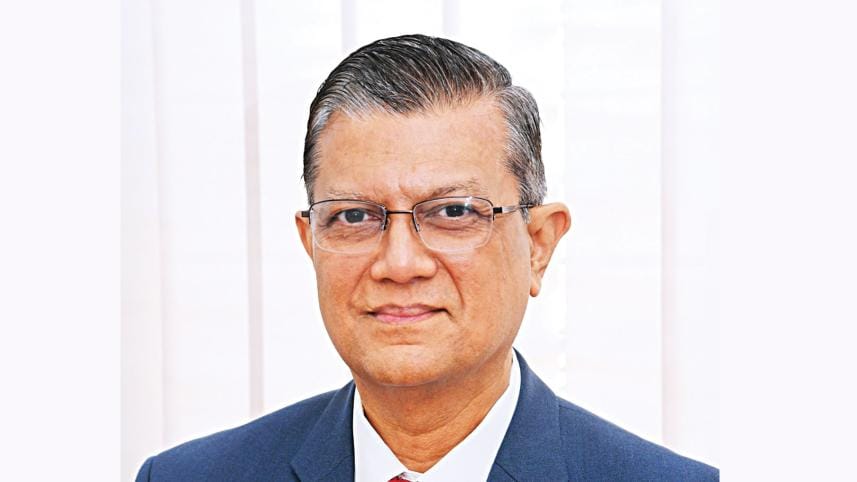Unlocking the Potential of the next generation

Md. Ahsan-uz Zaman
Managing Director & CEO, Midland Bank
The Daily Star (TDS): Why is school banking pivotal for individual development and national advancement?
Md. Ahsan-uz Zaman (MAZ): "Learn to save today, lead the world tomorrow." Early exposure to the concept of saving helps instil discipline and prepares students to manage future financial responsibilities such as higher education, business ventures, or personal investments. Initiatives like school banking nurture entrepreneurial thinking and teach students to view money as a tool for growth rather than merely for consumption.
From the perspective of the management team at Midland Bank PLC, we view school and student banking as a strategic initiative with profound implications for both individual development and national progress. A generation equipped with financial knowledge is more likely to make informed decisions, boosting economic stability and reducing vulnerabilities such as over-indebtedness. By encouraging a culture of saving and investment from a young age, school banking contributes to the mobilisation of domestic resources, which fuels national development projects and economic growth.
TDS: What has been the recent response to school banking initiatives in the country?
MAZ: The response to school and student banking initiatives in Bangladesh has been encouraging and demonstrates significant potential for inclusive growth. Many schools across the country have shown noticeable interest in collaborating with banks to introduce financial education and savings programmes for their students.
Undergraduates, especially in urban and semi-urban areas, are more likely to open accounts under these schemes, showing enthusiasm for learning about banking and financial management. The Central Bank has played a crucial role in driving the adoption of school banking, emphasising financial inclusion as a national priority.
Rural areas are also beginning to embrace school banking, aided by mobile phone initiatives and the commendable contribution of agent banking channels. School banking has proven effective in introducing financial services to previously unbanked families, as many guardians open accounts for their children and subsequently engage with the banking system themselves.
While responses have been positive, challenges remain, such as limited awareness in remote areas and the need for greater digital integration to make these accounts more accessible and engaging. Addressing these issues presents an opportunity for banks like ours to innovate and expand the reach and impact of school banking programmes. Overall, school banking in Bangladesh is gaining traction as a transformative initiative that benefits students, families, and the national economy. Midland Bank is proud to play an active role in this movement.
TDS: How does your bank facilitate school banking?
MAZ: In developing countries like Bangladesh, banks play a significant role in promoting financial literacy and savings habits among students through school banking programmes. Today's students are the future of the nation. These initiatives aim to educate young learners about the importance of saving money, managing finances, and building a secure future. At Midland Bank, we don't just offer financial services; we build lifelong relationships that foster financial responsibility and prepare students for prosperity.
To this end, we have designed tailored student accounts like "MDB School Saver" and "MDB College Saver," which include attractive features such as zero minimum balance, competitive interest rates, and a minimal initial deposit. These accounts come with safety measures, including guardian-controlled joint-account features, allowing parents to guide their children in managing finances responsibly. Moreover, our Financial Literacy Wing plays a pivotal role in educating students.
We also offer exclusive loan schemes for higher education, with preferential rates for long-term account holders, to enhance financial inclusion.
At Midland Bank, we believe that school and student banking is not just about accounts but about unlocking the potential of the next generation. By combining innovative financial products, educational initiatives, and a commitment to inclusivity, we aim to build a financially aware and empowered society, one student at a time. This is not just an investment in our future customers; it is an investment in the future of our nation.



 For all latest news, follow The Daily Star's Google News channel.
For all latest news, follow The Daily Star's Google News channel.
Comments